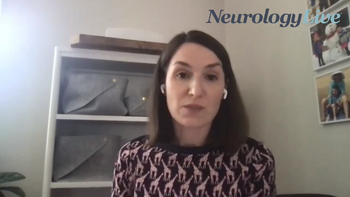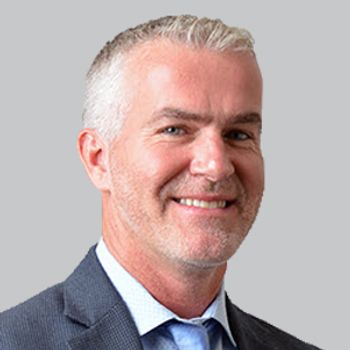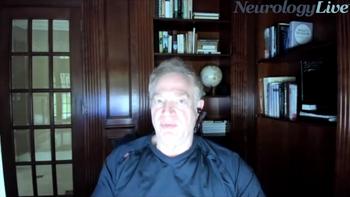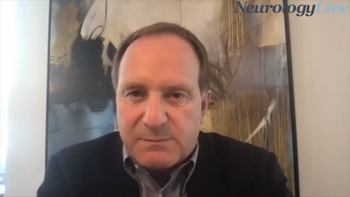
The task force assessed 6 total interventions, all of which received conditional recommendations aside from cognitive behavioral therapy for insomnia, which was strongly recommended.

The task force assessed 6 total interventions, all of which received conditional recommendations aside from cognitive behavioral therapy for insomnia, which was strongly recommended.

Results from the START study of medication switching in narcolepsy were presented at the 2021 SLEEP Annual Meeting.

Neurology News Network for the week ending June 12, 2021.

The FDA-approved agent demonstrated meaningful reduction in the frequency of cataplexy attacks in adults with narcolepsy, including patients with a high symptom burden.

Data presented at SLEEP 2021 also showed the treatment was associated with significant weight loss and reduction in BMI compared to placebo.

The program director of the Medstar Georgetown University Hospital Headache Medicine Fellowship program discussed further research to be conducted with the nasal delivery of DHE.

The findings support previous data that showed no differences between telemedicine and traditional consultations in HIT-6 assessment scores over a long-term period.

The director for the Montefiore Headache Center discussed the COURAGE study and how to effectively use a layered treatment approach with ubrogepant and CGRP monoclonal antibodies.

A post-hoc analysis of the phase 2/3 trial of rimegepant revealed early and sustained efficacy compared to placebo, with significant reductions in weekly migraine days.

The program director of the Medstar Georgetown University Hospital Headache Medicine Fellowship program discussed the advantages of INP104 over other forms of dihydroergotamine.

Investigators conducted a 9-month study that demonstrated the correlation of the MBI, calculated as the sum of headache days times the maximum intensity of headache on each headache day, with satisfaction of migraine status.

Researchers used a connected network of studies that were generally well balanced in terms of key baseline characteristics, such as baseline MMD and use of prior therapies, to compare preventive treatments.

The director for the Headache Center of Southern California discussed his research presented at AHS 2021 which evaluated a combination of onabotunlinumtoxinA and CGRPs in patients with chronic migraine.

Recent data presented at the AHS annual meeting showed clinically meaningful improvements in MMD and MHD in patients with both chronic and episodic migraine.

A post-hoc analysis of 4 clinical trials of galcanezumab found no differences between dose groups of galcanezumab or placebo in rates of ‘wearing off’ effect.

The director of the Headache Center of Southern California provided insight on how a layered treatment approach to chronic migraine can be directly implemented into clinical care.

The director of the Montefiore Headache Center detailed the ways the Migraine Buddy app can help simplify conducting migraine clinical trials while expanding the reach of patients.

Absence of photophobia, phonophobia, and nausea were achieved in a similar percentage of perimenstrual and non-perimenstrual ubrogepant-treated attacks.

These real-world findings confirm that a 156- to 195-unit dose of onabotulinumtoxinA is efficacious and safe, consistent with findings from the PREEMPT clinical trials.

The program director of the Medstar Georgetown University Hospital Headache Medicine Fellowship program discussed the findings of the STOP 301 study.

Using the FDA-approved Cefaly device, the TEAM study data suggest that the device can be applied as a safe alternative to pharmacological treatments in the acute treatment of migraine.

The chief medical officer of Biohaven Pharmaceuticals discussed the findings of an assessment of rimegepant (Nurtec ODT) exposure with concomitant administration of inhibitors of P-gp and BCRP transporters.

An assessment of data from the PROMISE-2 trial suggests that individuals who respond to treatment in the first month are likely to maintain their response through at least 6 months.

The director of the Headache Center of Southern California discussed his research from AHS 2021 which evaluated safety and efficacy of combined treatment with CGRPs and onabotulimtoxinA.

Open-label data of concomitant use of CGRP monoclonal antibodies and receptor antagonists suggest that the agents can be safely and effectively combined in the treatment of migraine.

The reported reasons included wanting to take care of symptoms themselves, concern that migraine will not be taken seriously, and believing migraines are not severe or painful enough to seek care.

Treatment with eptinezumab resulted in reduced burdensome features of headache episodes including severe pain, photophobia, phonophobia, nausea, and limited physical activity.

Respondents reported varying levels of comfort regarding the management of migraine during pregnancy, with only half of women’s healthcare providers indicating they conducted counseling on migraine during pregnancy.

Investigators’ analysis of a subset of patients with insufficient response from the CENTURION study suggests that the acute agent from Eli Lilly offers potential in this population.

Treatment with INP104 was associated with high rates of symptoms freedom and may be a promising new acute treatment for patients with migraine.